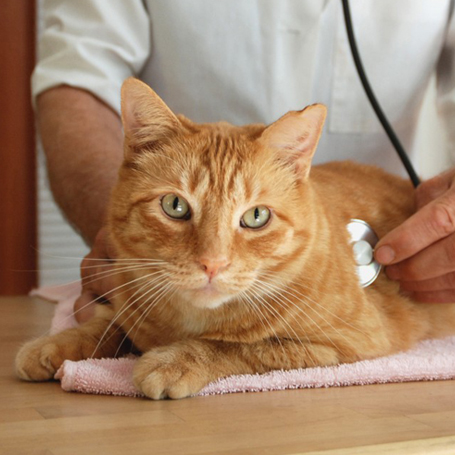
Wellness Exams
Just like you, we want your pet to live the longest, healthiest life possible. That starts with the basics: quality food, enough exercise, good grooming, and yes, regular check-ups.
Annual wellness exams are your pet’s first line of defense. Animal Hospital of the Sierra’s comprehensive annual exams includes checking their overall health from nose to tail and looking for any changes that may have occurred.
These wellness exams also allow us to develop a customized care plan for your pet’s optimal health—one that includes preventive care like vaccines and blood screenings, parasite prevention, nutritional and behavioral advice, and medical intervention when needed.
Wellness exams are also important for another reason: they enable us to truly get to know you and your pet. We consider it part of our job as your pet’s health care provider to understand not only your animal companion’s physical needs but to support the bond you have with your pet. Our goal is to help your pet have as many happy, healthy years with you as possible.
When You Arrive
We want to make your pet’s visit with us as positive as possible, so after you check in, one of our veterinary assistants should greet you and show you to your exam room. This assistant will remain with you and your pet through the whole visit to cuddle your pet and help with routine procedures.
The doctor will want to know as much as possible about your pet: food and treats, places your pet regularly visits, how much and what type of exercise he or she gets, and other lifestyle information.
Exams and Testing
Our veterinarian will perform a comprehensive examination of your pet and may recommend blood work to help us detect any unseen problems and assess the function of your pet’s internal organs. These screenings are very important because they enable us to catch health issues early when they can be more successfully treated and managed, and often before they become life-threatening.
For Your Senior Pet
While we recommend annual visits for all adult dogs and cats, we do believe that senior animals should have yearly blood work as well. Pets age differently based on species, breed, and size, but generally speaking, most dogs are considered seniors around age 7; cats at 9. Since animals age much faster than we do, disease and illness progress more quickly, and we want to catch problems early while they’re more treatable.
To schedule an exam for your pet, request an appointment online or give us a call at 559-683-3313.